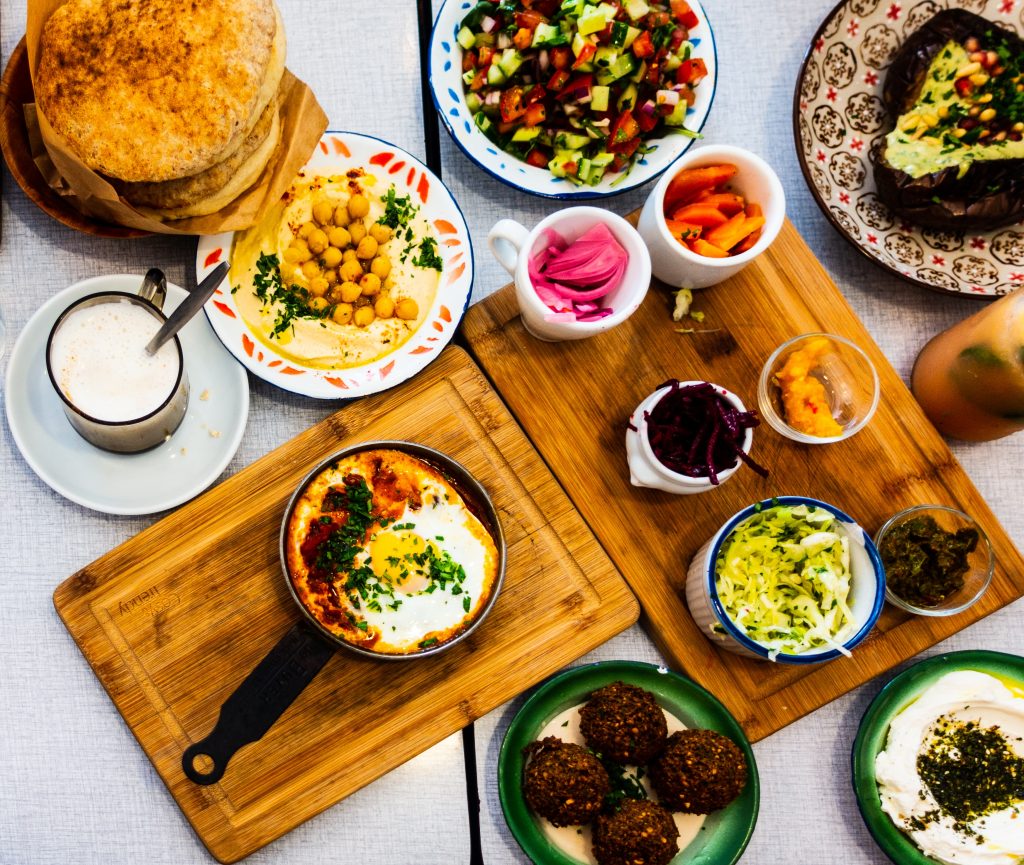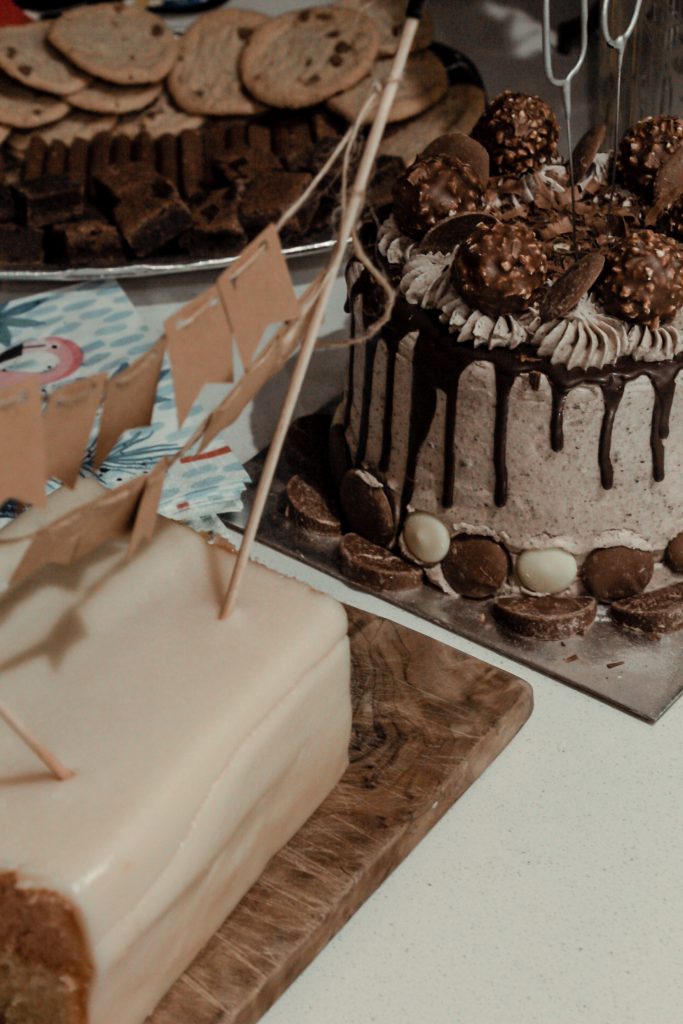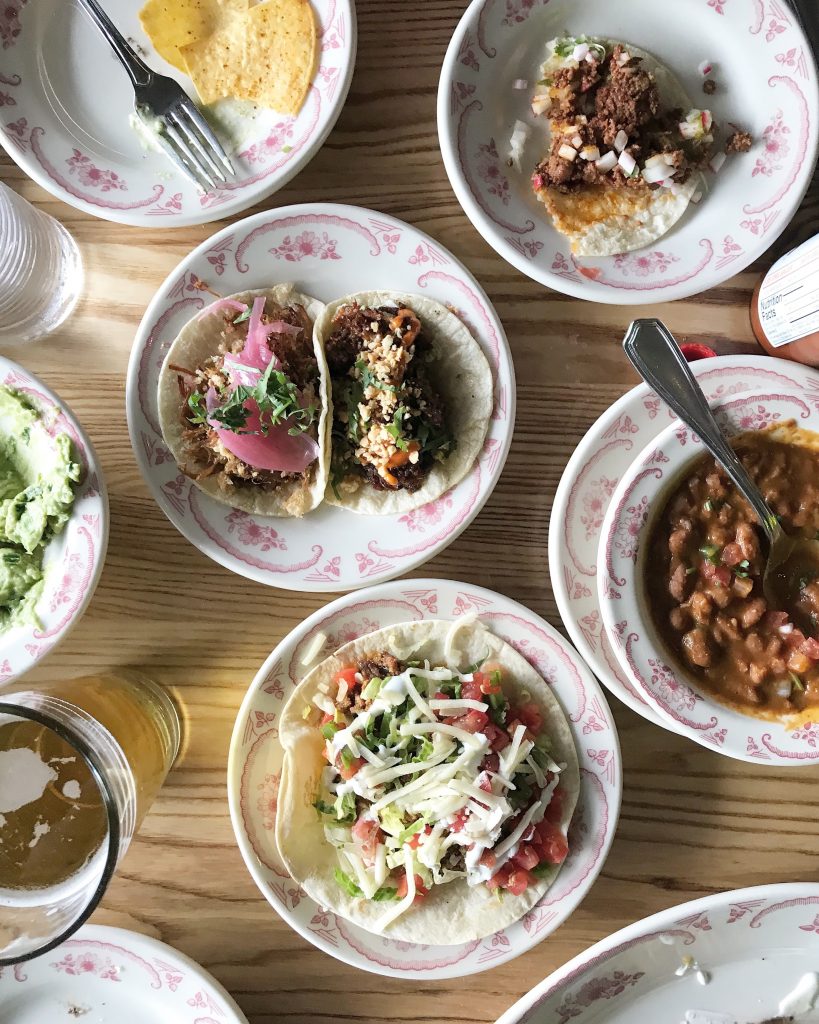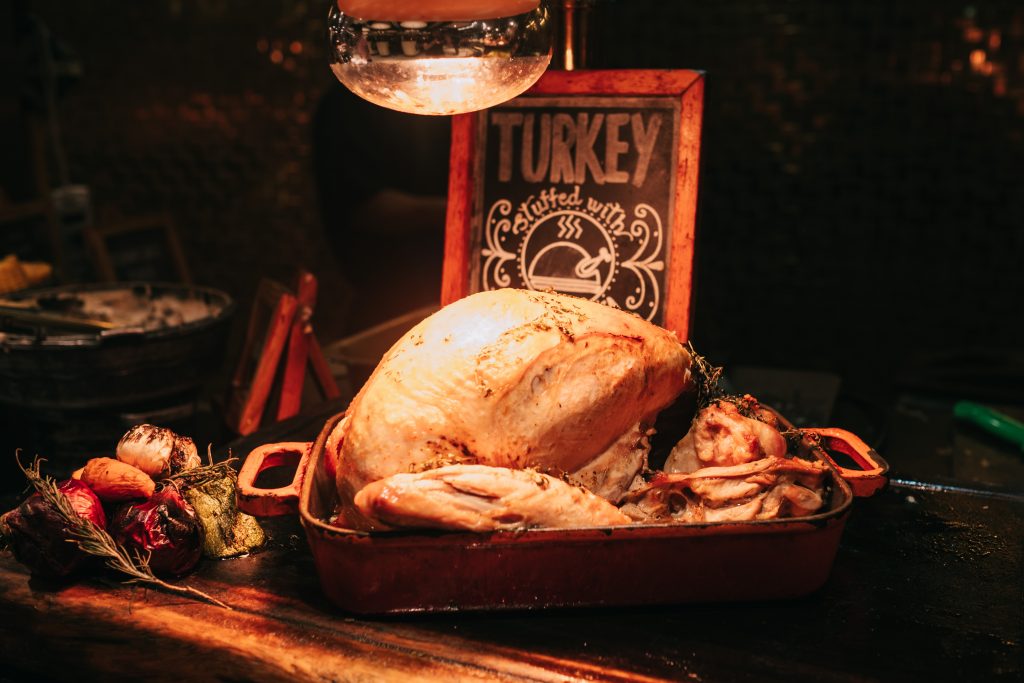With all the snow coming down this week, it’s not so hard to believe that Thanksgiving is just around the corner. To get us in the mood for food, we’re thinking about some of the most memorable feasts in fiction. What’s the first one to pop into your mind?
Supper and a Toast in Joyce’s “The Dead”
“It was always a great affair, the Misses Morkan’s annual dance,” James Joyce tells us in “The Dead,” one of the best-known stories in his famous 1914 collection, Dubliners. “Never once had it fallen flat.”
Gabriel Conroy, the protagonist, feels pressure to keep up this tradition, knowing he’s expected to address the crowd with a festive speech at suppertime. But the guests are probably in a forgiving mood, considering that this sumptuous meal awaits them:
A fat brown goose lay at one end of the table and at the other end, on a bed of creased paper strewn with sprigs of parsley, lay a great ham, stripped of its outer skin and peppered over with crust crumbs, a neat paper frill round its shin and beside this was a round of spiced beef. Between these rival ends ran parallel lines of side-dishes: two little minsters of jelly, red and yellow; a shallow dish full of blocks of blancmange and red jam, a large green leaf-shaped dish with a stalk-shaped handle, on which lay bunches of purple raisins and peeled almonds, a companion dish on which lay a solid rectangle of Smyrna figs, a dish of custard topped with grated nutmeg, a small bowl full of chocolates and sweets wrapped in gold and silver papers and a glass vase in which stood some tall celery stalks. In the centre of the table there stood, as sentries to a fruit-stand which upheld a pyramid of oranges and American apples, two squat old-fashioned decanters of cut glass, one containing port and the other dark sherry. On the closed square piano a pudding in a huge yellow dish lay in waiting…
Was ever a meal described in more loving detail? One has to suspect Joyce was hungry while writing it…

Wedding Cake Blues in Esquivel’s Like Water for Chocolate
It’s hard to talk about food in fiction without including the book where food literally embodies emotion: Like Water For Chocolate, a magical realist tale in a historical setting, published in 1989 by Mexican novelist Laura Esquivel. Tita, the heroine, is held back by her strict family, but when she cooks, the pent-up feelings she’s experiencing are felt by whoever eats her cooking!
This is never more memorable than at the wedding feast of Pedro, her beloved, who unfortunately happens to be marrying Tita’s sister. Tita stirs her own tears into the wedding cake batter… and the result is not a joyful end to the celebrations.

The Fifteen-Day Feast in “Sir Gawain and the Green Knight”
The unnamed author of this late-14th-century poem about the days of King Arthur really liked a good feast. The most memorable one, celebrated over the holiday season, went on for quite a while!
This King lay royally at Camelot at Christmas tide with … all the rich brethren of the Round Table, with right rich revel and careless mirth … For there the feast was held full fifteen days alike with all the meat and the mirth that men could devise. Such a merry tumult, glorious to hear; joyful din by day, dancing at night.
Trans. by W. A. Neilson
All the meat and the mirth? Sounds like an excellent party, unless you’re a vegetarian.

A Feast of Fancy in Burnett’s A Little Princess
Sara Crewe was used to the finer things, but after her father’s death, the young heroine of Frances Hodgson Burnett’s 1904 children’s book A Little Princess must live as a servant in an unheated attic with rats. On one especially hard and hungry evening, she and her friends take comfort in imagination: they pretend to have a grand banquet, complete with minstrels, golden platters, carven flagons, and a feast of sweet things to eat.
Caught and punished by her cruel employer, Sara falls asleep in despair, only to awake to find that something like her fantasy has some how, unbelievably, come true:
In the grate there was a glowing, blazing fire; on the hob was a little brass kettle hissing and boiling; spread upon the floor was a thick, warm crimson rug; before the fire a folding-chair, unfolded, and with cushions on it; by the chair a small folding-table, unfolded, covered with a white cloth, and upon it spread small covered dishes, a cup, a saucer, a teapot; on the bed were new warm coverings and a satin-covered down quilt; at the foot a curious wadded silk robe, a pair of quilted slippers, and some books. The room of her dream seemed changed into fairyland—and it was flooded with warm light, for a bright lamp stood on the table covered with a rosy shade.
After Sara has called in her friend, “they removed the covers of the dishes, and found rich, hot, savory soup, which was a meal in itself, and sandwiches and toast and muffins enough for both of them.”
Is it a dream? Magic? Or is there some still more surprising explanation? We suggest picking up the book to find out.

Bob Cratchit’s Christmas Dinner in Dickens’s A Christmas Carol
Naturally, the list wouldn’t be complete without this. No, not that skimpy little goose the Cratchits would have eaten and enjoyed! We mean the big prize turkey that Scrooge sends to them after he embraces the true Christmas spirit. And don’t forget “the pudding, like a speckled cannon-ball … bedight with Christmas holly stuck into the top”!
Then again, you might also think of the impressive feast that the Ghost of Christmas Present brings with him:
“Heaped up on the floor, to form a kind of throne, were turkeys, geese, game, poultry, brawn, great joints of meat, sucking-pigs, long wreaths of sausages, mince-pies, plum-puddings, barrels of oysters, red-hot chestnuts, cherry-cheeked apples, juicy oranges, luscious pears, immense twelfth-cakes, and seething bowls of punch, that made the chamber dim with their delicious steam. In easy state upon this couch, there sat a jolly Giant, glorious to see…”
But Scrooge isn’t reformed yet, so nobody eats this feast — which is maybe for the best, since it’s been sat on.
Which of these dishes would you pick if you could have one appear by magic? And what other literary feasts have made you drool?


